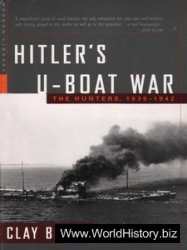In speaking of the structure and plot of the Iliad it is convenient to refer to the conventional book divisions, though these were almost certainly not employed by Homer himself but inserted in the Hellenistic period. First a short proem (1.1-5) invokes the name of the Muse and concentrates not (as one might have expected) on the glories of a Greek conquest or the might of their leading hero, but on Achilles’ anger and the devastation it caused to the Greek forces. Then the starting point of the tale is set, ‘‘from when the quarrel began between Agamemnon and Achilles’’ (1.6-7), and after a few lines in anticipation of the immediate crisis (the plague imposed by the offended Apollo: 1.811) the narrative and direct speech begin at once. Apollo’s priest attempts to ransom his daughter, Agamemnon’s prize; the Lord of Men harshly refuses; in answer to the priest’s prayer the god descends and inflicts the army with plague, Achilles calls an assembly to hear what the chief seer considers its cause, and the scene is set for the conflict between Agamemnon and his restive subordinate (1.12-58).
Their harsh words reveal a history of disagreement between the two, and Agamemnon compounds his folly in antagonizing a god by antagonizing his most important ally also, threatening to seize Achilles’ prize captive to replace the one he must now surrender to her father, and after further angry exchanges he actually follows through on this. During the encounter, Achilles is restrained from violent action by the advice of Athena (1.188222), and the old counselor Nestor vainly attempts mediation (1.247-84). Essentially, the cause of the strife is not the work of the gods, the Trojan enemy, or human wickedness, but unwise actions by two powerful egos in an unfortunate juxtaposition and relative rank order - a continuing and universal human problem.
The enraged Achilles withdraws from the Greek army, and in response to his goddess mother Thetis’ supplication Zeus promises that in his absence the Greeks will be defeated. But before this happens (in Book 8), the poet enlarges the range of the narrative with further issues: an account of the beginning of the expedition to Troy and the forces engaged there (Book 2); a recapitulation of the cause of the war, the seduction of Menelaos’ wife Helen by the Trojan prince Paris (Book 3); a further insult to the gods by the Trojans’ breaking of a truce (Book 4); the battlefield exploits of Diomedes, a temporary surrogate for the absent Achilles (Book 5); the introduction of the Trojan leader Hektor and his wife and child (Book 6); and a formal duel between Hektor and Ajax (Book 7), a preview of his final encounter with Achilles (in Book 22).
Beaten back as a result of Zeus’ decision (Book 8), Agamemnon and the disheartened Greeks send an embassy to Achilles and offer him an immense compensation if he will return (Book 9), but he rejects three appeals in succession and vows not to return until the Trojans reach his own ships. After an irrelevant night-time Greek patrol (Book 10, perhaps a later addition by the same poet), five books (11-15) describe the ebb and flow of battle around the newly-built Greek defensive wall, lightened by some humorous action on the divine level (14.153-353). In addition, the next part of the plot is introduced by Nestor’s suggestion to Achilles’ friend Patroklos that the latter don Achilles’ armor and lead Achilles’ troops into the battle in the brooding hero’s place (11.793-802). In response, Patroklos persuades Achilles to let him do this, and he returns to the battle as his surrogate (Book 16). He is killed by Hektor, and after a long struggle his body is recovered by the Greeks (Book 17).
The grief-stricken Achilles vows to avenge him, but first his mother Thetis obtains a newly-made set of armor for him from Hephaestos (Book 18), and the gifts promised to him by Agamemnon’s envoys in Book 9 must be handed over (Book 19). He then returns to the battle and kills many Trojans, survives an assault by the god of one of the rivers near Troy (Books 20-1), and eventually kills Hektor in a duel (Book 22). He then presides over Patroklos’ funeral and the games which honor the dead man (Book 23).
This concludes the tales of withdrawal, return, and revenge, but the last book (24) introduces a further theme of consolation. Despite his revenge, Achilles remains inconsolable and continues to mutilate his enemy’s corpse (24.1-22). Encouraged by the worried gods, old Priam journeys to Achilles’ camp to ransom the corpse of his son, and Achilles consoles him; they share a meal, Achilles restores the body, and gains control over his own anger and sorrow (24.159-676). The Trojans (and Helen) lament over the body of Hektor and bury him (24.697-804). The poem thus concludes not with the fall of Troy or the death of Achilles (though both events are heavily foreshadowed throughout), but by the hero’s acceptance of his mortal limits (as in Gilgamesh; see Chapters 15, 20, and 6, by Noegel, Burkert, and Nagy) and the universality of human suffering. Achilles finds closure not by killing the man who slew his greatest friend, but by showing compassion to the family of his victim.




 World History
World History









